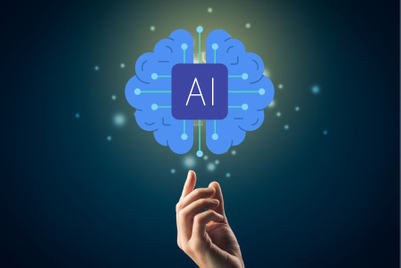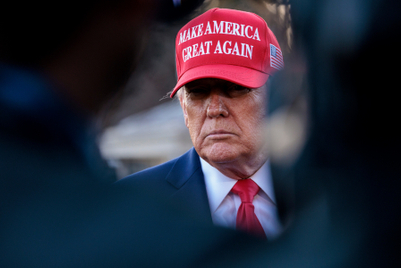.jpg&h=570&w=855&q=100&v=20250320&c=1)
Programmatic advertising has transformed digital marketing, providing brands with an efficient, automated way to purchase ad space in real time. With technological advancement, the future of programmatic advertising will be shaped by data analytics and artificial intelligence (AI).
These changes will augment targeted ads and provide value-added solutions to optimise campaigns with business-specific, dynamic, and personalised advertising. Technological advancements in advertising have accelerated over the last decade, with real-time bidding being the most revolutionary change.
As artificial intelligence (AI) and data analytics improve targeted advertising, they will lead to campaign optimisation, allowing businesses to deliver precise, dynamic, and personalised ad experiences.
Data plays the hero's role
Data remains at the core of programmatic advertising. Still, its significance has grown. It allows marketers to unconditionally access vast amounts of consumer data about behaviour, attitudes, web habits, and buying patterns.
Such data facilitates the programmatic delivery of targeted advertisements to specified viewers at the right time. What distinguishes the future of programmatic is the increasing versatility in data usage.
Programmatic is moving from simply relying on demographic criteria to using first-party data (data collected directly from the brand’s customers), third-party data (general data on people whose information is collected from external sources), and contextual data (the surroundings in which the ad will appear). All of this data helps create precise campaigns so that consumers can be reached based on a combination of interests, behaviour, geography, etc.
The rise of AI
AI is transforming programmatic advertising, taking the process to a new level. AI enables machines to learn and expect how various data sets can influence consumer behaviour and replace the advertising strategy automatically to create better results.
Predictive analytics is a key AI-powered application in programmatic advertising. It analyses past consumer interactions with ads, and an AI algorithm predicts which consumers are most likely to respond to a particular advertisement or make a purchase.
The analytics tool then automatically shows relevant advertisements to target audiences at the right time and for appropriate durations, thus optimising conversion and ROI. Another feature of programmatic advertising, dynamic creative optimisation (DCO), employs AI to analyse and optimise visual elements, messages, and CTA according to viewer preferences.
Automation and real-time bidding
Automation will be another pivotal programmatical advertising feature in the future, especially useful in real-time bidding (RTB). RTB helps an advertiser bid for ad impressions in real time instead of buying a large ad space volume all at once.
Moreover, it allows them to bid for ad impressions based on AI and machine learning (ML). The advertisers can then modify their bids and strategies on the go to maximise returns.
Besides increasing a digital campaign’s efficiency and delivering time-savings, AI also helps minimise human error. As technology advances, automation will further accelerate and optimise campaign management in the coming years.
Advertisers will then be able to simply set their sales or engagement goals, and let AI handle the finer aspects of targeting, bidding, and creative optimisation.
Privacy and ethical considerations
Programmatic advertising raises privacy concerns due to its over-reliance on data. To address these issues, regulations such as the General Data Protection Regulation (GDPR), 2008 introduced by the European Union, and the California Consumer Privacy Act (CCPA), 2020 require advertisers to use data collected from various sources appropriately. India's Digital Personal Data Protection Act, 2023, which is currently in draft form for public consultation, also aims to address consumer data privacy and security concerns.
The upcoming privacy legislation will redefine the future of programmatic advertising in India. More brands will adopt a privacy-first approach to earn consumer trust through transparent data practices and consumer consent in advertising. AI will help in analysing and managing data appropriately to meet compliance goals.
In future, programmatic advertising will rely heavily on data analytics and AI. Their evolution will provide essential tools for marketers to craft tailored, efficient, and impactful campaigns.
To survive in this ecosystem, businesses must strike the right balance between automation and AI, adhere to good practices, maintain transparency, and retain consumer trust regarding data usage.
Programmatic advertising will continue to make strides towards hyper-targeted, real-time, and data-driven approaches, urging advertisers to leverage technological advancements. The future will favour advertisers who employ AI, data analytics, and automation while addressing privacy concerns.
 — Rosanlal Behera, co-founder, Mashrise
— Rosanlal Behera, co-founder, Mashrise

.jpg&h=334&w=500&q=100&v=20250320&c=1)
.jpg&h=334&w=500&q=100&v=20250320&c=1)



.jpg&h=334&w=500&q=100&v=20250320&c=1)
.jpg&h=334&w=500&q=100&v=20250320&c=1)


.jpg&h=334&w=500&q=100&v=20250320&c=1)

.jpg&h=268&w=401&q=100&v=20250320&c=1)



.jpg&h=268&w=401&q=100&v=20250320&c=1)


